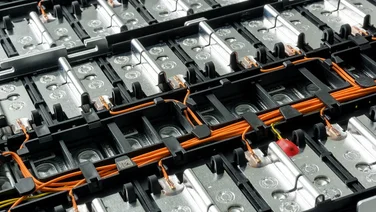We receive a small fee from trusted installers when you request a quote through our site. This helps us keep our content independent, well-researched and up to date – Learn more
- A battery stores energy
- A fuel cell takes an energy source and converts it into electrical energy
- Fill in the form at the top of the page for charging point quotes
People all around the globe are increasingly switching to cleaner modes of transport, such as electric cars. But when it comes to actually investing in an EV, and possibly the price of installing an electric car charging point, their are many options.
Many people tend to overlook hydrogen fuel cell cars, opting instead for the more popular option of a battery-powered electric vehicle.
In this article, we’ll guide you through which best suits your needs: batteries or fuel cells. We’ll discuss the difference between battery and fuel cell cars, pointing out the pros and cons of both, differences in price and levels of efficiency. You’ll be on the road to a smaller carbon footprint in no time.
Get free EV charging point quotes
Answer a few quick questions, and our trusted installers will send you bespoke EV charging point quotes – for free.

What’s the difference between fuel cells and batteries?
Let’s go over the basics.
While both of these technologies power vehicles, they do it in completely different ways. The biggest difference between the two is that a battery stores energy, while a fuel cell takes an energy source – such as hydrogen, propane, diesel, or natural gas – and converts it into electrical energy. A fuel cell can also have a battery as a system component to store the electricity it’s generating.
Although fuel cells are predominantly used with hydrogen, they can also use fossil fuels. Rather than ‘combusting’ the fuel’s chemical energy, it ‘converts’ it. The result is a fuel cell that can create clean electricity, efficiently and effectively.
Types of electric vehicle fuel cells and batteries
Types of batteries
- Lithium-ion batteries – Most electric vehicles run off lithium-ion batteries. They have a high power-to-weight ratio, high energy efficiency, good high-temperature performance, and low self-discharge
- Nickel-metal hydride batteries – These batteries are widely used in hybrid-electric vehicles, and tend to have a much longer life cycle than lead-acid batteries. However, nickel-metal hydride batteries are quite pricey, have high self-discharge, and also have high heat generation in hot temperatures
- Lead-acid batteries – Lead-acid batteries can be designed to be high power, whilst also being affordable, safe, and reliable. However, these batteries can also have poor cold-temperature performance, and can have a shorter life cycle than other batteries
Types of fuel cells
- Proton exchange membrane (PEM) – This uses a ‘polymer electrolyte’ to convert fuel into energy, and is one of the most common fuel-cell types. It offers a compact build, great longevity, and quick response. However, a PEM can be expensive, it can be complex, and it uses specialised fuel
- Alkaline fuel cell (AFC) – This uses an alkaline solution to convert energy. It has high efficiency, involves low manufacturing costs, and is a simple system with no compressors. However, it’s bulky and requires pure hydrogen and oxygen
- Molten carbonate fuel cell (MCFC) – This uses a molten-carbonate solution to convert energy. It has high efficiency, good fuel compatibility, and is suitable for large-scale vehicles. However, MCFC is also susceptible to corrosion, has a slow start, and tends to have a short life
- Phosphoric acid fuel cell (PAFC) – This uses phosphoric acid to convert energy. This was the first type of fuel cell to become commercial. It tolerates fuel impurities, and is suitable for large-scale models. The cell is, however, susceptible to corrosion, quite bulky, and has low efficiency
Are fuel cells more expensive than batteries?
A lot of investment has been pumped into both battery-powered and fuel cell vehicles over the past decade – and as a result, prices for both products have decreased massively.
The price of fuel cell vehicles – especially buses – has been reduced by 65% over the past 10 years, whilst batteries have seen a decrease in costs by more than 85% in the same timeframe.
Despite this drop in prices, fuel cell cars are likely to remain pricey for quite some time, whereas battery-powered cars are predicted to continue falling in price. This is mainly down to the fact that a lot of governments are pushing for the electrification of transport. In fact, the UK government is aiming for 50% of all new vehicles sold in the UK to be electric by 2035.
Despite the rising popularity of electric vehicles, only 55% of people would have an EV if it were free, according to our National Home Energy Survey.
We’ve outlined how much you can expect to pay as a starting price for each type of vehicle below.
|
Type of car |
Starting price |
Range |
Time to refill |
|---|








